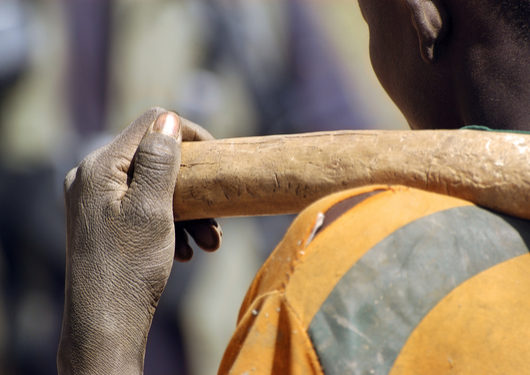
Visit Our Sponsors |
|
|
|
|
|
|
|
|
|
|
|
|
|
|
|
|
|
|
|
|
|
|
|
|
|
|
|
|
|
|
|
|
|
|
|
|
|
|

Most of his neighbors are still sound asleep at 5 a.m., when Lukasa rises to begin his 12-hour workday. The slender 15-year-old, with an oval face and piercing stare, slips out of his family’s mud-brick home before dawn six days a week. Then he makes the two-hour walk from his tiny village in the southern region of the Democratic Republic of the Congo to a government-owned mining site. (Fortune is withholding the name of the village in order to protect Lukasa and other children.) Once at the mine, Lukasa spends eight hours hacking away in a hole to accumulate chunks of a mineral that is crucial to keeping our modern lives moving: cobalt.
By about 3 p.m., Lukasa has filled a sack with his day’s haul. He hoists the load, which can weigh up to 22 pounds, on his back and lugs it for an hour by foot to a trading depot. “I sell it to Chinese people,” he says, referring to the buyers from Chinese commodity trading companies who dominate the market in the area. Lukasa is wearing a T-shirt with “Prada” written on the front and sitting under a shade tree in his village on a recent Sunday, his one day off, as he explains his routine. With a hint of pride he says, “On good days I can earn 15,000 francs.” That adds up to about $9.
From his vantage point in one of the poorest countries in the world, Lukasa has little awareness that a multibillion-dollar scramble is underway for the grayish metal he digs out of the ground some 300 days a year. Lukasa has, he says, recently begun to grasp that his cobalt mining earnings are a pittance compared with the sums that traders make selling it on the world market. But that business is hard to fathom for those living near Kolwezi, the hardscrabble center of the cobalt industry in Congo. It’s more difficult still for diggers living in poverty, like Lukasa, to understand a surge in demand for the mineral that has sent the price of cobalt on commodities markets rocketing up some 400 percent, from about $10 a pound in 2016 to a peak of about $44 in April.
That soaring appetite for cobalt is a product of today’s device-driven tech economy: The metal is a key component in the lithium-ion batteries that power countless millions of smartphones, computers, and tablets. Cobalt provides a stability and high energy density that allows batteries to operate safely and for longer periods. Without it, our digital lives — at least for the moment — would be unable to function as they do.
Read more
RELATED CONTENT
RELATED VIDEOS
Timely, incisive articles delivered directly to your inbox.

